AWM41 1047 - [Nurses Narratives] Sister A H Stone - Part 2
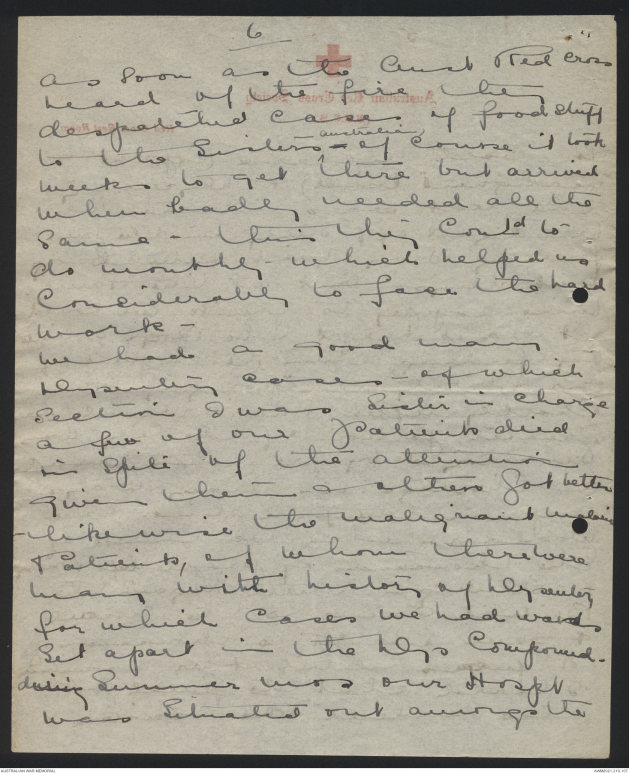
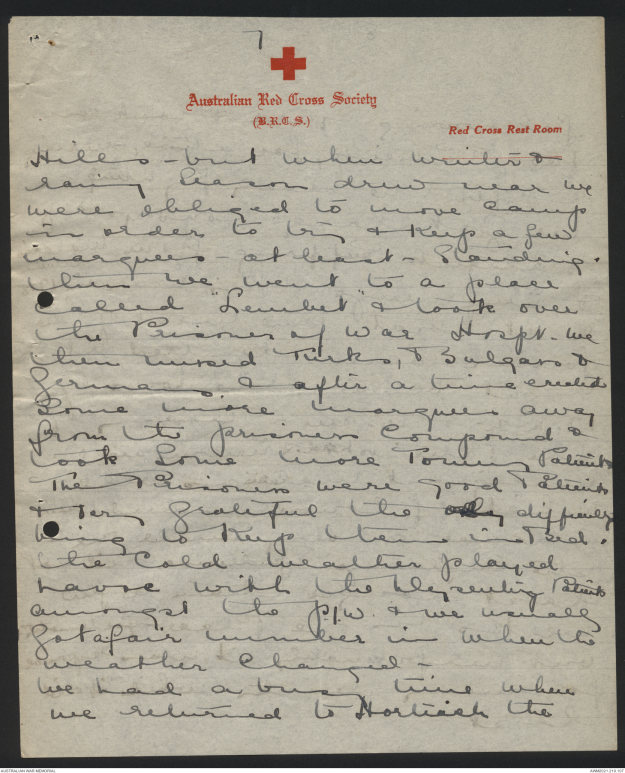
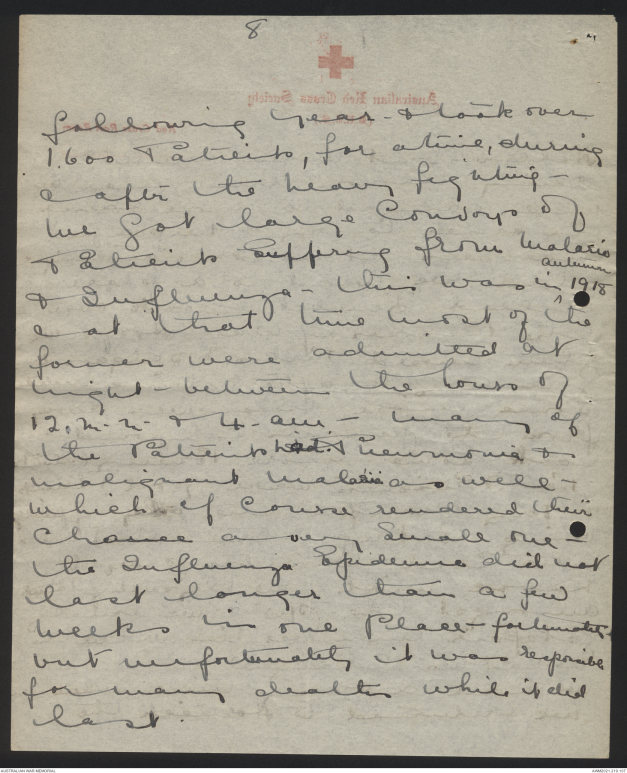
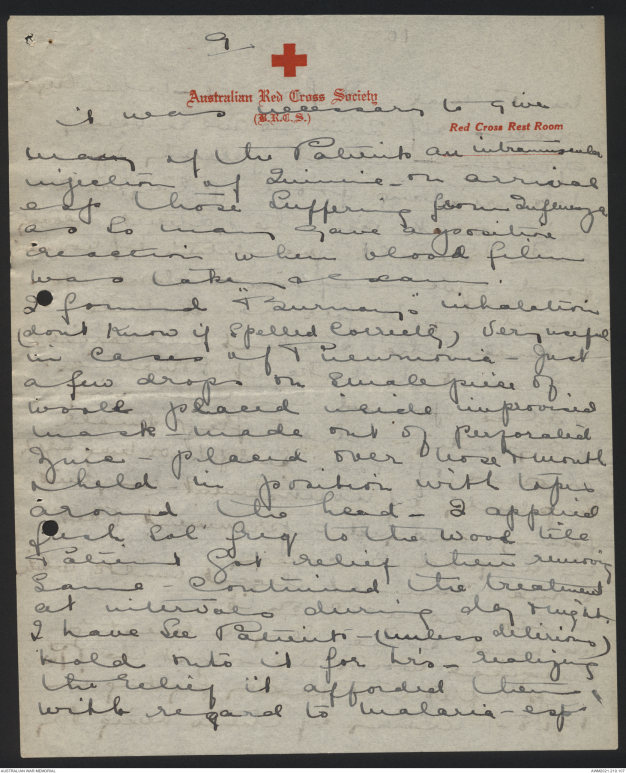
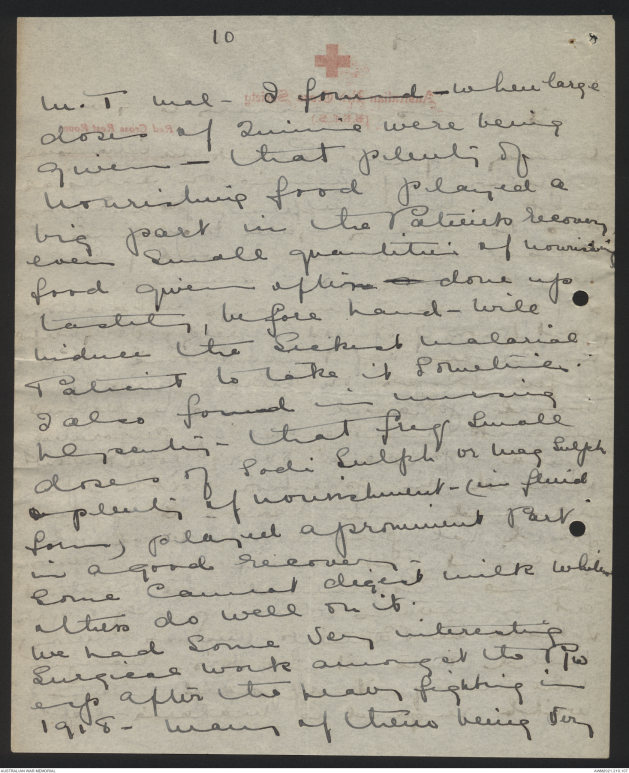
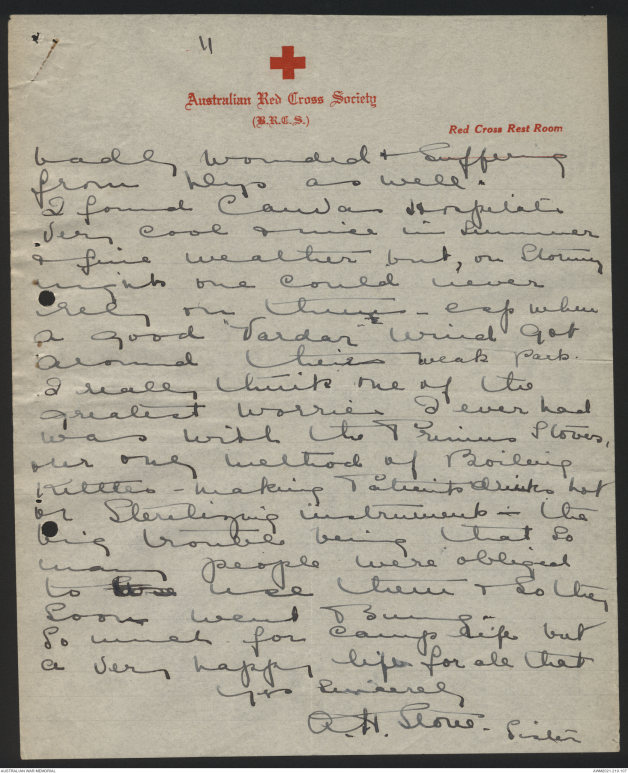
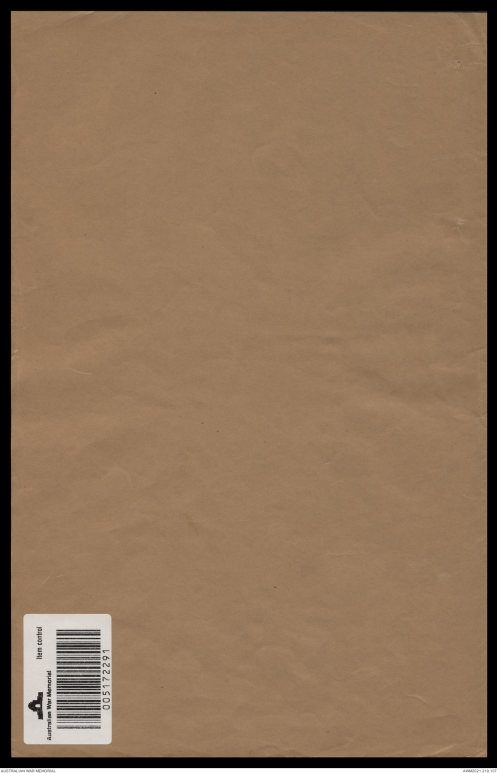
6
as soon as the Aust Red Cross
heard of the fire they
despatched cases of food stuff
to the Sisters - Australian, - of course it took
weeks to get there but arrived
when badly needed all the
same - this they contd to
do monthly which helped us
considerably to face the hard
work -
We had a good many
Dysentery cases - of which
Section I was Sister in Charge
a few of our Patients died
in spite of the attention
given them & others got better
- likewise the malignant malaria
Patients, of whom there were
many with history of Dysentery
for which cases we had wards
set apart in the Drs Compound.
during Summer was our Hospt
was situated out amongs the
7
Australian Red Cross Society
( A.R.C.S.)
Red Cross Rest Room
Hills - but when Winter &
rainy season drew near we
were obliged to move camp
in order to try & keep a few
marquees - at least - standing.
Then we went to a place
called "Lembet" & took over
the Prisoner of War Hospt. we
then nursed Turks, Bulgans &
Germans. & after a time erected
some more marquees away
from the prisoners compound &
took some more Tommy Patients
The Prisoners were good Patients
& very grateful the only difficulty
being to keep them in Bed.
the cold weather played
havoc with the Dysentery Patients
amongst the P/W & we usually
got a fair number in when the
weather changed.
We had a busy time when
we returned to Hortiach the
8
following year & took over
1,600 Patients, for a time, during
& after the heavy fighting -
We got large convoys of
Patients suffering from Malaria
& Influenza - this was in ^Autumn 1918
& at that time most of the
former were admitted at
night - between the hours of
12. m.n. & 4. a.m. - many of
the Patients had Pneumonia &
malignant malaria as well -
which of course rendered their
chance a very small one -
the Influenza Epidemic did not
last longer than a few
weeks in one place - fortunately
but unfortunately it was responsible
for many deaths while it did
last.
9
Australian Red Cross Society
(A.R.C.S.)
Red Cross Rest Room
it was necessary to give
many of the Patients an intramuscular
injection of Quinine - on arrival
esp those suffering from Influenza
as so many gave a positive
reaction when blood film
was taken & exam.
I found "Burneys" inhalation
(dont now if spelled correctly) very useful
in cases of Pneumonia - just
a few drops on small piece of
wooll placed inside improvised
mask - made out of perforated
zinc - placed over nose & mouth
& held in position with tapes
around the head - I applied
fresh sol. freq to the wool till
Patient got relief then removing
same - continued the treatment
at intervals during day & night.
I have see Patients - (unless delirious)
hold onto it for hrs - realizing
the relief it afforded them.
with regard to malaria - esp.
10
M.T mal - I found - when large
doses of Quinine were being
given - that plenty of
nourishing food played a
big part in the Patients recovery
even small quantities of nourishing
food given often & done up
tastily, before hand - will
induce the sickest malarial
Patient to take it sometimes.
I also found in nursing
Dysentery that freq small
doses of Sodi Sulph or mag Sulph
& plenty of nourishment - (in fluid
form) played a prominent part
in a good recovery.
Some cannot digest milk while
others do well on it.
We had some very interesting
surgical work amongst the P/W
& ofs after the heavy fighting in
1918 - many of them being very
11
Australian Red Cross Society
(A.R.C.S.)
Red Cross Rest Room
badly wounded & suffering
from Dys as well.
I found Canvas Hospitals
very cool & nice in Summer
& fine weather but, on stormy
nights one could never
rely on them - esp when
a good "Vardar" wind got
around their weak parts.
I really think one of the
greatest worries I ever had
was with the Primus stoves,
our only method of Boiling
Kettles - making Patients drinks hot
or sterlizing instruments - the
big trouble being that so
many people were obliged
to wxx use them & so they
soon went Bung.
So much for camp life but
a very happy life for all that
Yrs sincerely
A.H. Stone
Sister
Item Control
Australian War Memorial
005172291
 Sam scott
Sam scottThis transcription item is now locked to you for editing. To release the lock either Save your changes or Cancel.
This lock will be automatically released after 60 minutes of inactivity.